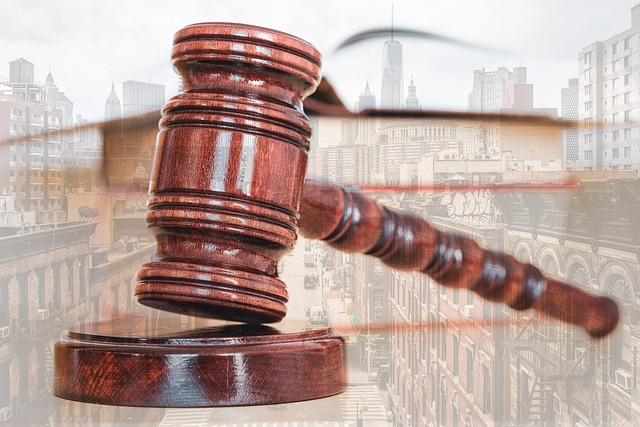In the realm of finance crime investigations, the decision between a plea bargain and trial is critical. A plea bargain offers quicker resolution with reduced charges or sentencing, while a trial involves presenting defenses and challenging the prosecution. This choice hinges on evidence strength, legal resources, and understanding rights/outcomes. Both options require strategic navigation through complex criminal law. For financial crime cases, the decision impacts individuals and the broader industry, balancing swift resolutions against potential guilt, fines, and reputation damage (plea bargain) versus high risks like acquittal or lengthy sentences (trial). Effective law enforcement seeks justice while protecting accused rights in this delicate equilibrium.
In the intricate world of finance crime investigations, understanding the interplay between plea bargains and trials is paramount. This article delves into the complexities of these legal strategies, exploring their impact on criminal law proceedings. From unraveling the intricacies of finance crime probes to dissecting the strategic considerations of plea bargains and trial processes, we weigh the pros and cons of each approach. Ultimately, this analysis provides insights into the consequences and potential reforms in shaping justice within finance crime cases.
- Understanding Finance Crime Probes: Unraveling the Complexities
- The Plea Bargain Option: A Strategic Approach to Criminal Law
- Trial Process: Unmasking the Legal Battlefields
- Weighing the Pros and Cons: Plea Bargain vs. Trial
- Impact of Choices: Consequences and Reform in Finance Crime Cases
Understanding Finance Crime Probes: Unraveling the Complexities

In the intricate landscape of finance crime probes, understanding the interplay between a plea bargain and trial within criminal law is paramount. These investigations often delve into complex financial transactions, requiring meticulous analysis and strategic navigation by both prosecutors and defendants. A plea bargain, where a defendant agrees to plead guilty in exchange for reduced charges or sentencing, stands as a pivotal option in many cases. This approach can be particularly appealing given the substantial legal and financial resources required for a full trial, especially when evidence is robust against the accused.
However, the decision between accepting a plea bargain or opting for a trial is not without its nuances. A general criminal defense strategy may focus on challenging the prosecution’s case, questioning evidence integrity, and raising legal defenses. Across the country, defendants often seek to avoid indictment by negotiating plea deals, offering their cooperation in exchange for leniency. Yet, navigating these complexities demands a nuanced understanding of one’s rights, potential outcomes, and the evolving nature of criminal law.
The Plea Bargain Option: A Strategic Approach to Criminal Law

In criminal law, the plea bargain option offers a strategic approach that can significantly impact the outcome of a case. A plea bargain, or plea agreement, is a deal between a defendant and the prosecution where the defendant agrees to plead guilty to a lesser charge in exchange for a reduced sentence or, in some cases, avoiding indictment altogether. This alternative to a trial provides both corporate and individual clients with an opportunity to negotiate their legal fate and potentially secure a more favorable outcome.
By accepting a plea bargain, defendants can avoid the risks and costs associated with a full trial. It allows them to bypass the lengthy process of presenting evidence, witness testimonies, and arguments in court, which may lead to a more unpredictable verdict. Instead, by pleading guilty to a reduced charge or agreeing to cooperate with prosecutors, defendants can often secure a complete dismissal of all charges or a lighter sentence, thereby alleviating potential legal consequences and moving forward with their lives more swiftly.
Trial Process: Unmasking the Legal Battlefields

In the legal arena of finance crime probes, the trial process serves as a crucial battlefield where the fate of accused individuals or corporations hangs in the balance. One of the fundamental strategic decisions that shape the course of any criminal case is whether to accept a plea bargain or proceed with a trial. A plea bargain involves an agreement between the prosecution and defense, leading to a negotiated plea, potentially reducing charges or sentences for the defendant. This route often promises quicker resolution, but it may not always achieve extraordinary results for all parties, especially when complex financial crimes are involved.
On the other hand, opting for a trial allows for a full presentation of evidence and legal arguments before a judge or jury. While time-consuming, this approach enables both sides to vigorously contest each aspect of the case. For corporate and individual clients facing serious charges, navigating through the complexities of a trial can be a strategic move to challenge the prosecution’s narrative and potentially secure more favorable outcomes. The choice between a plea bargain and trial demands careful consideration based on the specifics of the case, legal advice, and the desired outcome.
Weighing the Pros and Cons: Plea Bargain vs. Trial

In criminal law, the decision between a plea bargain and trial involves weighing crucial pros and cons for both prosecutors and defendants. A plea bargain offers a quicker resolution to cases, allowing courts to manage heavy backlogs and provide some certainty for all parties involved. It can also lead to reduced sentences or dropped charges for defendants who admit guilt, which might be appealing for those facing severe penalties. However, critics argue that plea bargains can result in unfair outcomes, as they may overlook potential mitigating factors or the true culpability of the accused.
On the other hand, a trial provides an opportunity for all stages of the investigative and enforcement process to play out fully, ensuring that justice is served and winning challenging defense verdicts. This approach can be beneficial for corporate and individual clients alike, as it allows for a thorough examination of evidence and arguments under cross-examination. Yet, trials are often lengthy and costly, with no guarantee of favorable outcomes, which may not sit well with those seeking swift resolution or concerned about the financial burden.
Impact of Choices: Consequences and Reform in Finance Crime Cases

The choices made in finance crime cases, whether it’s a plea bargain or going to trial, have profound implications that extend far beyond the immediate outcome. Plea bargains, while often seen as a quicker path to resolution, can result in significant consequences for individuals and businesses alike. Accepting a plea deal might involve admitting guilt, facing substantial fines, and suffering damage to one’s reputation, which can hamper future business opportunities. On the other hand, choosing a trial offers the chance to present one’s case before a jury, but it’s a risky proposition with potential outcomes ranging from an acquittal to a lengthy prison sentence and hefty restitution orders.
These decisions shape not just the lives of accused individuals but also influence the broader financial landscape. A successful prosecution can serve as a deterrent, making would-be criminals think twice before engaging in fraudulent activities. However, avoiding indictment through clever legal strategies isn’t uncommon, leading to concerns about loopholes and a potential lack of accountability. The quest for justice in finance crime cases requires striking a delicate balance between effective law enforcement and ensuring that the rights of the accused are protected, especially within the respective business environment.
In navigating the intricate world of finance crime probes, understanding both plea bargain options and trial processes is paramount. The decision between these two paths significantly influences the outcomes and reforms in these cases. By weighing the pros and cons of plea bargains versus trials, legal professionals can better serve justice, ensuring consequences that reflect the complexities of financial crimes. This analysis highlights the strategic approach needed to resolve such cases, ultimately shaping a more effective criminal law framework.






